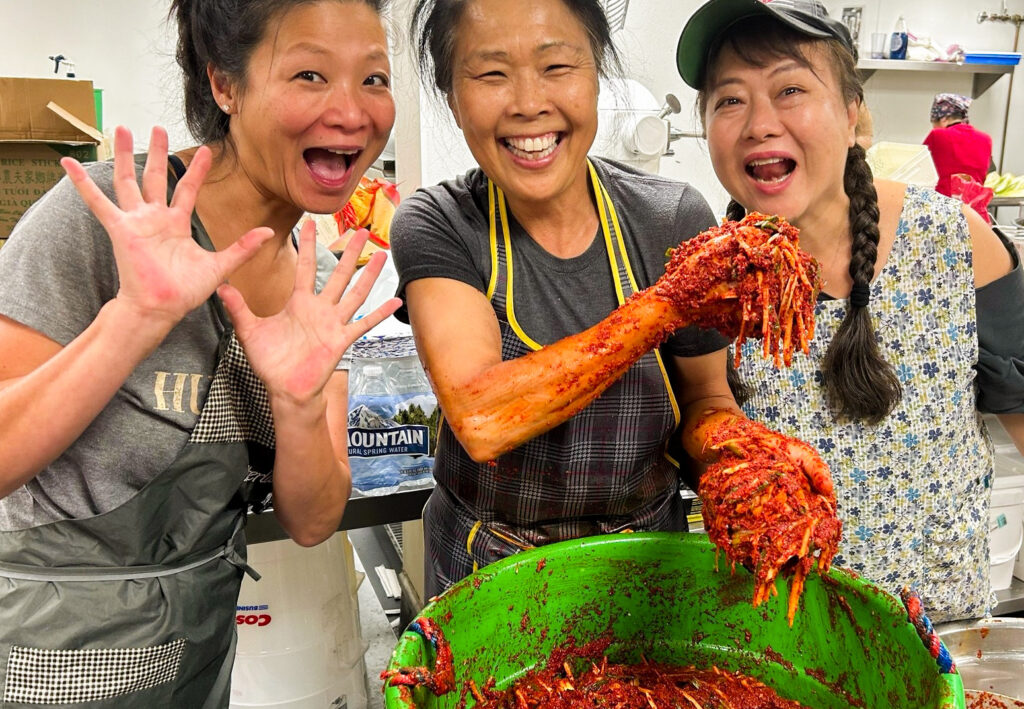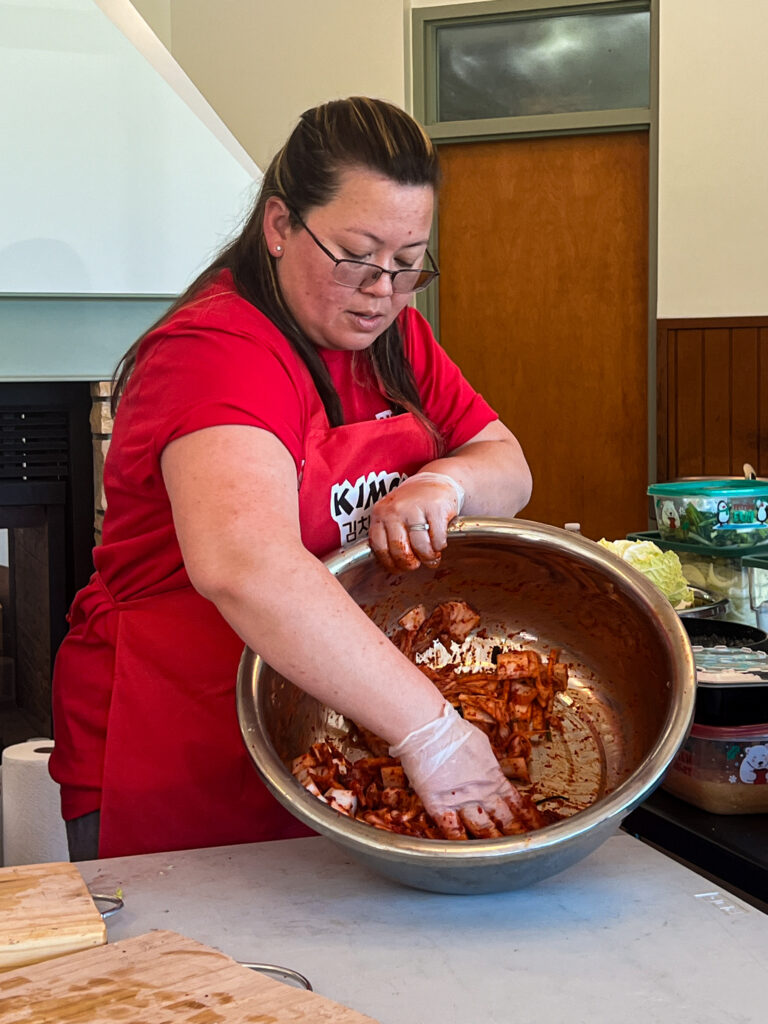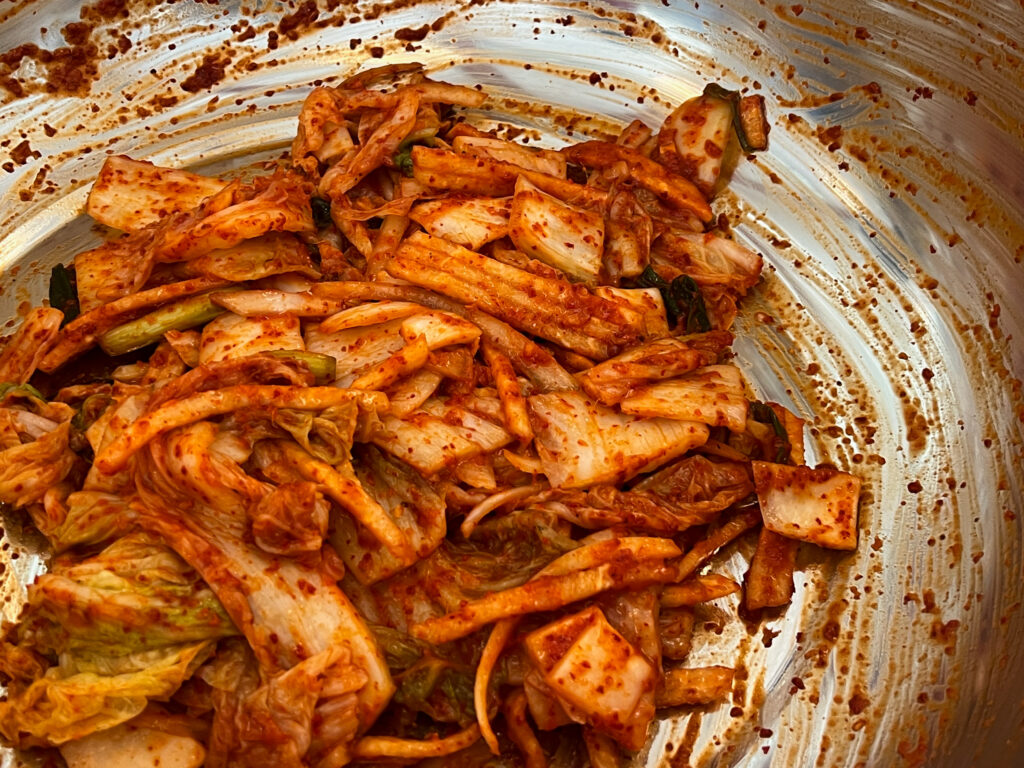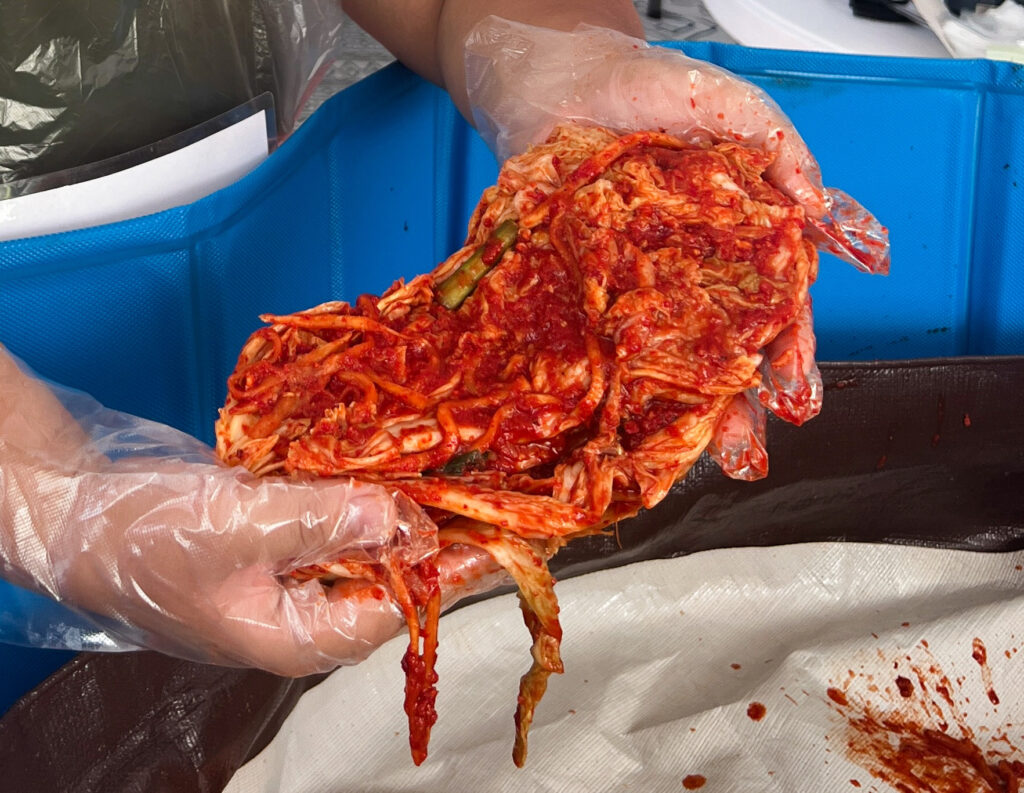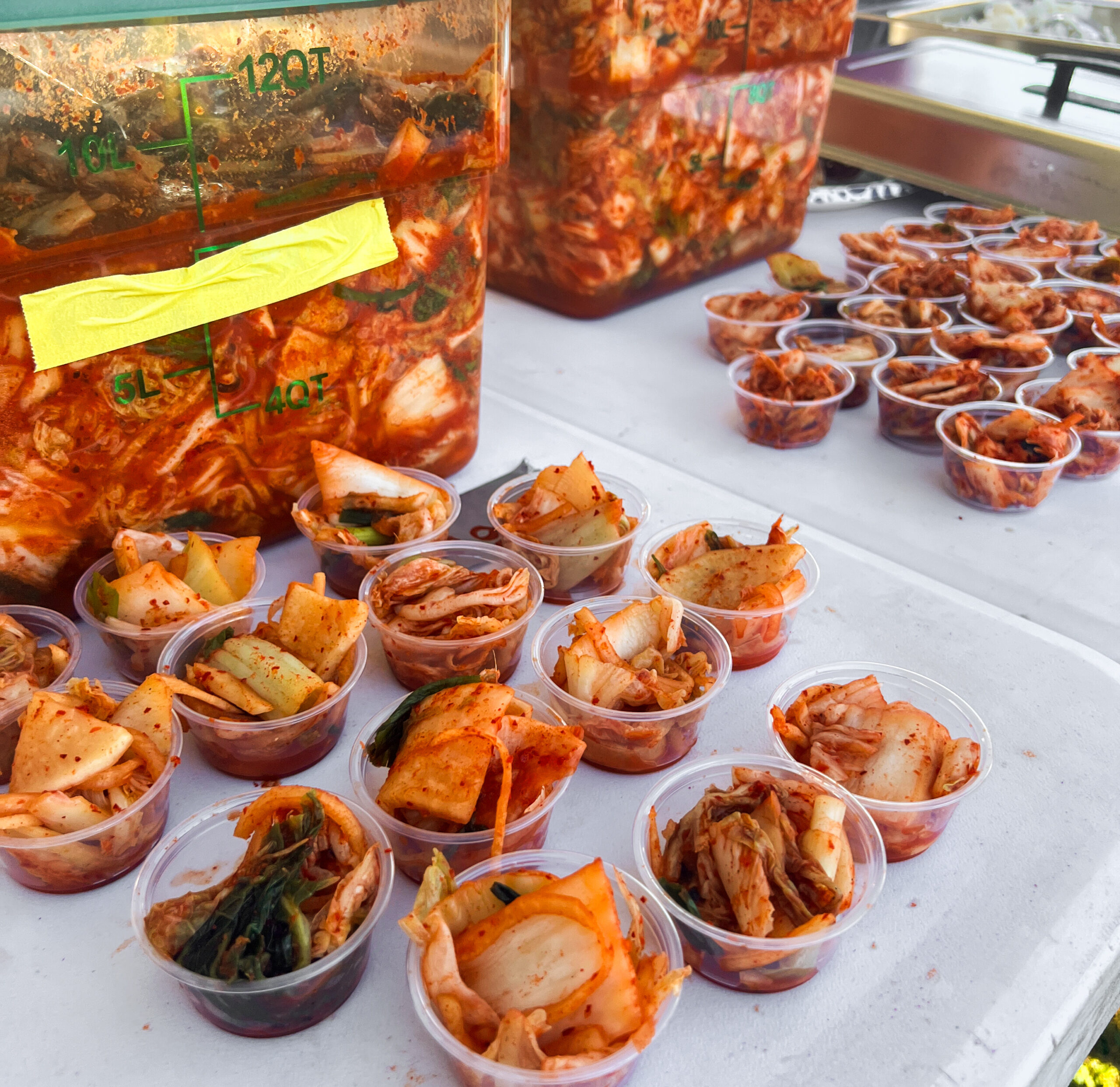For three full days leading up to the last weekend of September, volunteers spent hours making hundreds of pounds of kimchi in preparation for Adoptee Hub‘s 2024 Kimchi Festival.
This year’s festival saw hundreds of attendees converge on Wolfe Park in St. Louis Park, Minnesota, just outside of Minneapolis—there, they were met with food trucks, demonstrations, performances, and tasting opportunities.
This was Adoptee Hub’s second iteration of the festival, with the 2022 edition being the first-ever Kimchi Festival in Minnesota.
It comes right in the season of the Korean harvest, just a couple weeks after Chuseok, the mid-autumn harvest festival—kind of like Korean Thanksgiving—when the cabbage is in peak season and ripe and ready to be preserved.
What is Kimchi?
Kimchi is Korea’s national dish. It’s eaten as a side dish, or banchan, with almost every meal, and is commonly used as an ingredient in fritters and stews.
Even though the traditional preparation is napa cabbage and radish with gochugaru (Korean pepper flake), technically any preparation of fermented vegetable can be considered kimchi—there are literally hundreds of different types eaten in Korea and around the world.
Some other common preparations include cucumber, bean sprout, green onion, or (my personal favorite) sweet potato stems as the base.
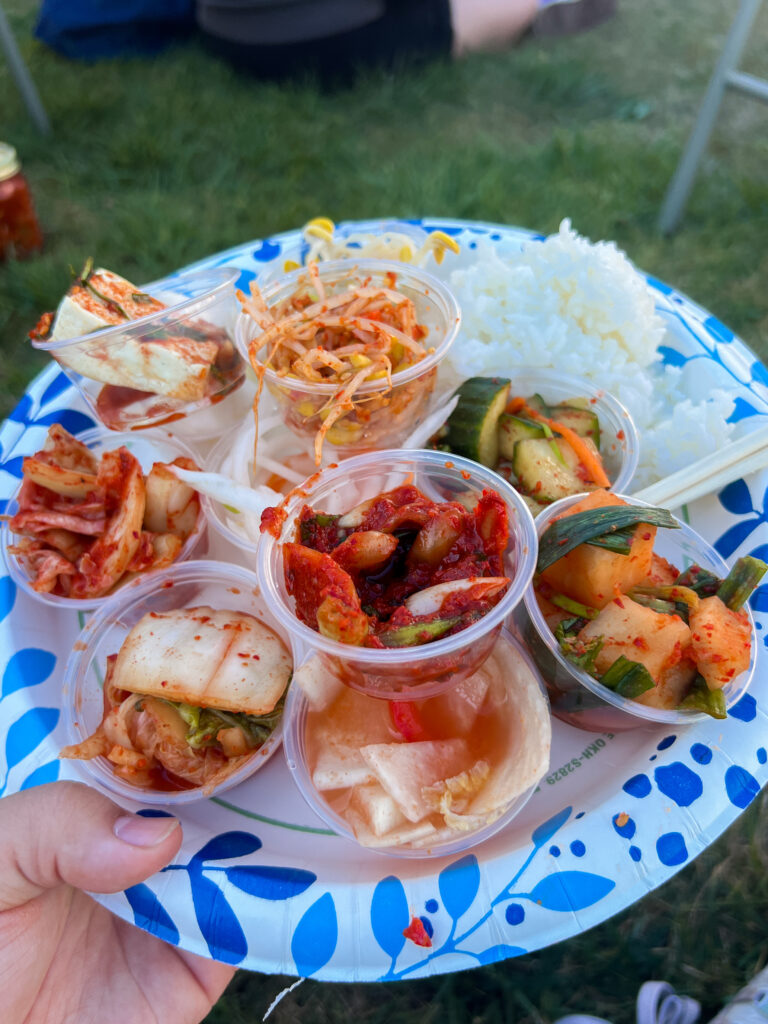
While the festival celebrates kimchi and the fall harvest, that’s not the only purpose.
Since its 2018 inception, Adoptee Hub has done the great work of providing resources to Korean adoptees (or KADs) in Minnesota, which is home to the largest population of Korean adoptees of any state in the country.
For years, they’ve been offering events like panels, cooking classes, film screenings, workshops, and other events to share and educate the community on Korean culture, and adoptee-specific programming like birth search services and wellness events.
Festival attendees had the opportunity to stop by booths to learn more about Adoptee Hub’s Hope Registry project to connect birth families, in addition to giving feedback to help shape future programming.
A lot of adoptees, myself included, grow up feeling really disconnected from and not having many opportunities to learn about their culture, so having opportunities like this to meet other adoptees and learn more about Korean food and traditions is incredibly valuable.
Adoptee Hub doesn’t exist in a vacuum, either—it’s part of a whole circle of Minnesotan organizations like Jangmi Arts and AK Connection that also provide artistic, cultural, and social opportunities for KADs to connect.
